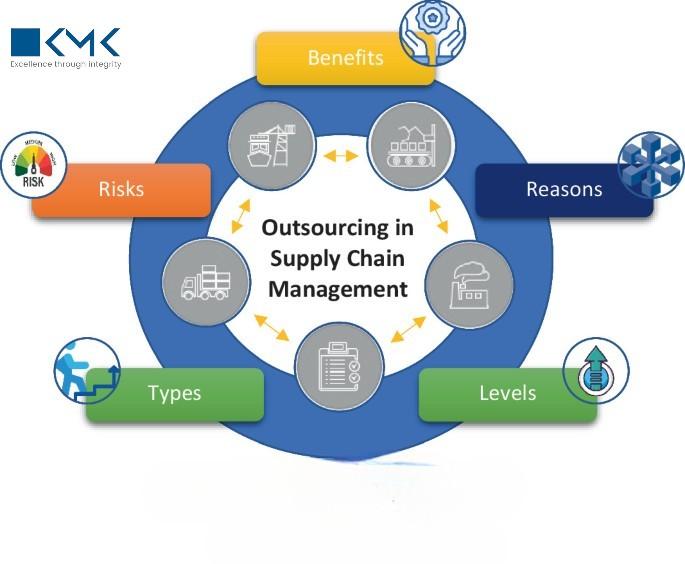How US Businesses Ensure Data Security With Inventory Management Outsourcing Companies

In today’s competitive business environment, outsourcing has become a key strategy for US companies to cut costs and focus on core operations. Among the most outsourced functions, inventory management stands out because of its complexity and impact on profitability. However, when outsourcing such a critical function, one concern often rises to the top: data security.
US businesses handle vast amounts of sensitive information, from supplier contracts and warehouse stock levels to customer order data. A single security breach can cause financial losses, reputational damage, and even regulatory penalties. This is why choosing the right inventory management outsourcing company and ensuring strong data protection measures is no longer optional—it’s essential.
Let’s explore how US businesses safeguard their data while outsourcing inventory management and the steps they take to mitigate risks.
Why Data Security Matters in Inventory Management Outsourcing
When companies outsource inventory management, they share critical information such as:
-
Real-time inventory levels across warehouses.
-
Supplier and vendor agreements.
-
Customer order history and personal details.
-
Financial records tied to purchasing and stock movement.
If mishandled, this data could expose a business to:
-
Cyberattacks such as ransomware or phishing.
-
Theft of sensitive customer data, leading to compliance violations.
-
Operational disruptions, causing stockouts, shipment delays, and financial losses.
For US businesses, especially those subject to regulations like SOX (Sarbanes-Oxley), HIPAA, or GDPR, securing data is not just good practice—it’s a legal requirement.
Key Data Security Practices Followed by US Companies
1. Partnering With Technology-Driven Providers
The best outsourcing providers use advanced technology platforms, including cloud-based inventory systems, encryption tools, and real-time monitoring dashboards. These solutions ensure that sensitive data is encrypted both at rest and during transmission.
US businesses prefer outsourcing partners who invest in modern cybersecurity frameworks to protect against evolving threats.
2. Conducting Rigorous Due Diligence
Before signing a contract, US firms thoroughly assess their outsourcing partner’s data security protocols. This includes:
-
Reviewing security certifications like ISO 27001 or SOC 2.
-
Checking compliance with US and international data protection laws.
-
Assessing the provider’s disaster recovery and backup plans.
This proactive approach helps companies minimize risk and choose partners who align with their compliance needs.
3. Using Access Control and Role-Based Permissions
Data access is one of the most vulnerable points in any outsourcing relationship. To reduce risk, companies implement role-based access control (RBAC), ensuring only authorized individuals can view or edit sensitive inventory data.
For example, warehouse staff may access stock quantities but not supplier pricing, while managers may see financial details. This layered access minimizes insider threats.
4. Enforcing Strong SLAs (Service Level Agreements)
US companies protect themselves by negotiating clear data security clauses in SLAs with outsourcing partners. These agreements typically include:
-
Data handling and storage requirements.
-
Breach notification timelines.
-
Penalties for non-compliance.
By putting security expectations in writing, businesses ensure accountability and reduce potential legal risks.
5. Regular Security Audits and Monitoring
Inventory management outsourcing is not a “set it and forget it” relationship. Leading US businesses schedule regular audits, penetration tests, and compliance checks to verify that their partner maintains security standards.
Continuous monitoring helps identify suspicious activity early, ensuring faster responses to potential breaches.
Common Data Security Challenges in Outsourcing
Despite robust measures, US businesses still face several challenges:
-
Third-Party Risks: Even if your partner has strong security, their subcontractors or vendors might not.
-
Cross-Border Compliance: Outsourcing to providers in countries with weaker regulations can complicate compliance with US standards.
-
Human Error: Mistakes by employees—like mishandling login credentials—remain a leading cause of data breaches.
Understanding these challenges allows businesses to build safeguards into their outsourcing contracts and operations.
How US Businesses Balance Efficiency and Security
Outsourcing inventory management helps companies save money and streamline operations, but without security, those benefits can quickly vanish. Successful businesses strike a balance by:
-
Choosing providers who combine efficiency with strong cybersecurity practices.
-
Investing in joint training programs so both internal staff and outsourcing teams understand best practices.
-
Maintaining shared accountability, where both the outsourcing partner and the business monitor compliance.
This dual approach ensures that efficiency gains don’t come at the cost of security.
Checklist for US Businesses Outsourcing Inventory Management
Here’s a quick checklist companies use to ensure data security when outsourcing:
-
Verify provider certifications (ISO 27001, SOC 2, etc.).
-
Confirm compliance with US regulations (SOX, HIPAA, GDPR, CCPA).
-
Review data encryption and cybersecurity tools.
-
Implement role-based access control.
-
Include strong data security terms in SLAs.
-
Schedule regular audits and monitoring.
-
Train staff on security best practices.
Final Thoughts
Outsourcing inventory management can unlock efficiency, reduce costs, and help US businesses scale faster. But without proper data security measures, it also introduces significant risks.
By partnering with trusted providers, enforcing strong contracts, and maintaining proactive oversight, businesses can ensure that sensitive inventory and customer data remain safe. In fact, those who manage security well often find outsourcing not only improves efficiency but also strengthens compliance and resilience against cyber threats.
In today’s digital-first world, data security is the foundation of successful outsourcing partnerships. With the right approach, US companies can confidently outsource inventory management while keeping their most valuable information safe.
- AI
- Vitamins
- Health
- Admin/office jobs
- News
- Art
- Causes
- Crafts
- Dance
- Drinks
- Film
- Fitness
- Food
- Games
- Gardening
- Health
- Home
- Literature
- Music
- Networking
- Other
- Party
- Religion
- Shopping
- Sports
- Theater
- Wellness


